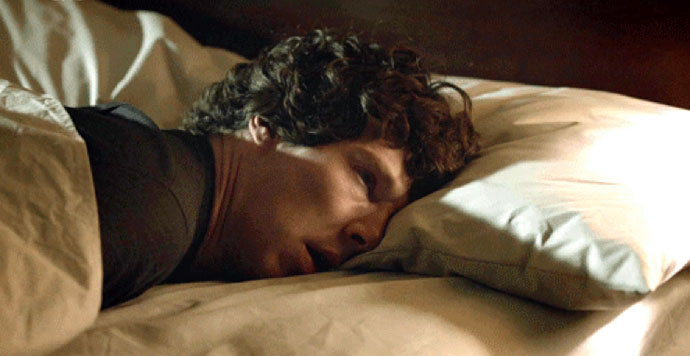9 Facts That Will Make You Happy You’re Not A Morning Person
Night owls often have a bad reputation — they’re frequently portrayed as lazy, undisciplined, unwilling to conform to a “normal” schedule and, worst of all, more prone to a host of mental and physical health problems than the lucky early birds. With all this pressure to become an early riser, night owls can have it rough — but luckily, it’s not all bad. Here are a few facts to brighten your night and make you glad you need to stay up a little bit (or a lot) later.
1. Night Owls Might Be Smarter… And More Successful
According to a study conducted by the University of Madrid, evening people score higher on general intelligence tests than morning people. And even though morning people tend to get better grades in school (which could perhaps be linked to their ability to mesh with a traditional morning-oriented schedule better than late sleepers), night owls were found to possess the kind of intelligence that was linked to higher incomes and more prestigious jobs.
2. They Get a Burst of Night Energy
About 10 and a half hours after waking up, night owls get a boost of energy and alertness, according to a study published in Science Magazine. Night people have also been shown to perform better at reaction-time tests later in the day than morning people, who often experience a late-afternoon slump, said the same study.
3. They’re More Relaxed
People who wake up earlier have higher levels of cortisol than those who sleep late, reported the BBC in the 1990s after a study on night owls versus early birds was conducted by the University of Westminster. They’re also more likely to experience muscle aches, headaches and cold symptoms than late risers.
4. Night Owls Are Often Creative Types
Scientists can’t explain why this is, but they suggest that it might be because night owls are accustomed to living “outside the norm,” according to a study conducted by researchers from the Department of Psychology at the Catholic University of the Sacred Heart in Milan in which evening-oriented people scored highly on tests that evaluated their “originality, elaboration, fluidity and flexibility factors,” while morning and intermediate people had much more difficulty.
5. Night Strength!
In 2009, researchers at Canada’s University of Alberta tested study participants’ leg muscle strength at different times of day and discovered that night owls have “peak performance” in the evening, while morning people remain consistent in their strength all day, never reaching a specific peak.
6. Night Owls Are Adventurous
Most of this information researchers found regarding the differences between night owls and early birds is kind of a downer, but one positive fact about night owls stands out: they have a “higher tendency to explore the unknown,” according to a study conducted by the University of Barcelona, Spain.
7. They Get To Enjoy the Nighttime
When you’re awake later at night you get to enjoy all the peace and quiet that the night brings, along with unexpected bonuses like shooting stars and meteor showers. Nighttime can be inspiring, relaxing and comforting all at once; there’s something oddly satisfying about being awake when everyone else is asleep.
8. They Have More Time to Do Things
Night owls drag themselves to school or work in the morning whether they want to or not, so even though they might not necessarily be fully conscious, they’re still physically there and most likely doing things. Early risers might be more perky during the day, but their day is shorter. They’re done at night, but night owls get to savor the time when they fully wake up and are better able to concentrate without as many distractions.
9. They’re Inquisitive
“In ancestral times any activities at night would have been novel and would, therefore, have been more likely to attract people with inquisitive minds,” says the Independent. Although this is only a theory, the same article cites research from the University of Madrid that found night owls scoring higher on inductive reasoning tests than early birds. Inductive reasoning is linked to innovative thinking, according to the Independent, suggesting that night owls do think in a more creative fashion than early risers.










































